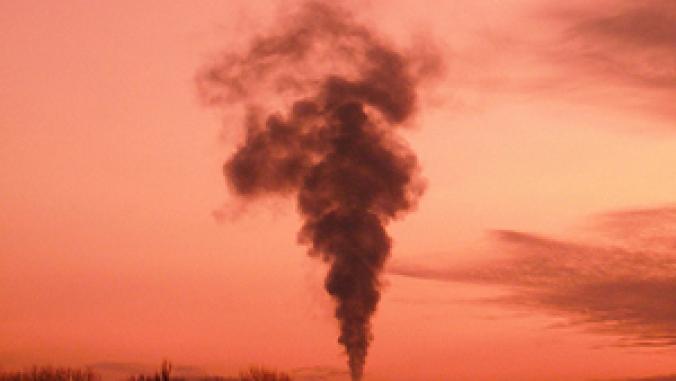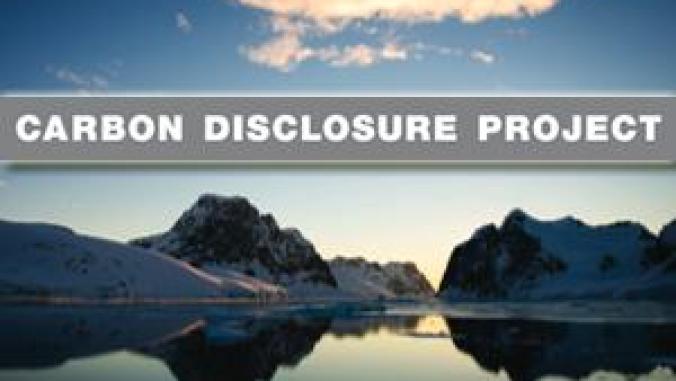Fiji Tries to Green Bottled Water with its Carbon-Negative Plan
Battling back against recent bad press about the sustainability of the bottled water industry, Fiji's owners announced a plan to reduce the carbon emissions from its product by 120 percent, more than offsetting total emissions.
Bottled water has had a rough few months in the public eye. The bad news had been growing for months, but really took off this summer, in a long article in the July/August issue of Fast Company that detailed the absurd amount of waste generated by bottled water every year, but green-minded consumers had long held a belief that disposable, plastic bottles were not an environmentally friendly concept.
Fiji Water, though it may be one of the smaller players in a major industry, took excessive heat in the Fast Company article, which said in part that "And in Fiji, a state-of-the-art factory spins out more than a million bottles a day of the hippest bottled water on the U.S. market today, while more than half the people in Fiji do not have safe, reliable drinking water."
Fiji Water's owners, Lynda and Stewart Resnick, announced a major plan yesterday to green up the image of a product that relies on packaging shipped great distances to its factory, and a finished product shipped even greater distances to consumers around the world.
At a press conference yesterday, Thomas Mooney, Fiji's senior vice president for sustainable growth, unveiled the multi-faceted plan, which covers the energy used to transport and produce the product, reductions in packaging, purchases of carbon offsets, and broader conservation initiatives.
The overall goal is to reduce emissions from its own operations and offset additional emissions so that Fiji bottled water generates -20 percent emissions -- a carbon-negative product. The company will do this through a number of methods, including the installation of a windmill on its plant in Fiji, the use of more ships and fewer trucks to transport its products, reducing the amount of plastic and paper it uses in packaging, and increasing the amount of alternative fuels used in its trucks and at its plant.
In addition to these internal changes, the company will also purchase carbon offsets to reduce emissions and announced a partnership with Conservation International to permanently protect the 50,000-acre Sovi Basin, the largest lowland rainforest remaining in Fiji.
Although the plan is ambitious and is intended to create a "guilt-free" bottled water product, the company -- and the industry as a whole -- has a tough row to hoe. In a New York Times article on the announcement, Michael J. Brune, executive director of the Rainforest Action Network, is quoted as saying, "Bottled water is a business that is fundamentally, inherently and inalterably unconscionable. [...] No side deals to protect forests or combat global warming can offset that reality."
Fiji Water, though it may be one of the smaller players in a major industry, took excessive heat in the Fast Company article, which said in part that "And in Fiji, a state-of-the-art factory spins out more than a million bottles a day of the hippest bottled water on the U.S. market today, while more than half the people in Fiji do not have safe, reliable drinking water."
Fiji Water's owners, Lynda and Stewart Resnick, announced a major plan yesterday to green up the image of a product that relies on packaging shipped great distances to its factory, and a finished product shipped even greater distances to consumers around the world.
At a press conference yesterday, Thomas Mooney, Fiji's senior vice president for sustainable growth, unveiled the multi-faceted plan, which covers the energy used to transport and produce the product, reductions in packaging, purchases of carbon offsets, and broader conservation initiatives.
The overall goal is to reduce emissions from its own operations and offset additional emissions so that Fiji bottled water generates -20 percent emissions -- a carbon-negative product. The company will do this through a number of methods, including the installation of a windmill on its plant in Fiji, the use of more ships and fewer trucks to transport its products, reducing the amount of plastic and paper it uses in packaging, and increasing the amount of alternative fuels used in its trucks and at its plant.
In addition to these internal changes, the company will also purchase carbon offsets to reduce emissions and announced a partnership with Conservation International to permanently protect the 50,000-acre Sovi Basin, the largest lowland rainforest remaining in Fiji.
Although the plan is ambitious and is intended to create a "guilt-free" bottled water product, the company -- and the industry as a whole -- has a tough row to hoe. In a New York Times article on the announcement, Michael J. Brune, executive director of the Rainforest Action Network, is quoted as saying, "Bottled water is a business that is fundamentally, inherently and inalterably unconscionable. [...] No side deals to protect forests or combat global warming can offset that reality."




